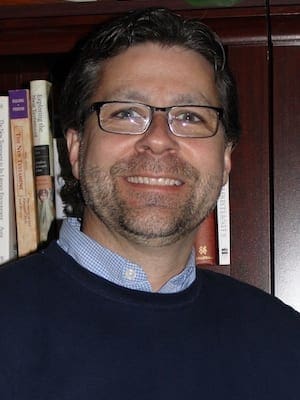One of the more comforting passages from the teachings of Jesus is found in Luke 12:22-34, where Jesus commands his listeners not to worry about the concerns of life, for God will take care of them.
But is this really Jesus’ meaning?
To interpret correctly, we must keep in mind the literary context in which we find Jesus speaking about worry.
It follows his telling of the “Parable of the Rich Fool” (Luke 12:13-21), who is a fool because he pursued wealth for himself with no thought for what God would demand of him.
Indeed, that very night God demanded his life, and his riches were wasted.
In context, we might understand Jesus’ command not to worry as applicable to our pursuit of wealth and possessions rather than our basic needs being met. This would mean that worry would dissipate if we stopped seeking riches and instead put our trust in God.
But what are we to make of the three illustrations Jesus offers in this passage?
â— “Consider the ravens: they neither sow nor reap, they have neither storehouse nor barn, and yet God feeds them. Of how much more value are you than the birds!”
â— “And can any of you by worrying add a single hour to your span of life? If then you are not able to do so small a thing as that, why do you worry about the rest?”
â— “Consider the lilies, how they grow: they neither toil nor spin; yet I tell you, even Solomon in all his glory was not clothed like one of these. But if God so clothes the grass of the field, which is alive today and tomorrow is thrown into the oven, how much more will he clothe you – you of little faith!”
What is Jesus’ purpose in using the ravens, the life span of human existence and the flowers to make his point?
First, Jesus says all of God’s creation, both nature and humanity, is dependent on God’s goodness for life and sustenance.
As Creator, God not only brings things into being but also sustains those things until their natural end. All life is God dependent.
This is what the rich fool failed to see or recognize. He thought that what he had was all because of what he had done, and he gave no thought for how God had blessed him. He failed to be dependent on God.
Second, Jesus expresses the temporality to our current existence.
Neither us, nor any of creation, is promised a tomorrow in this world. Thus, we are not to spend our short existence striving for wealth and possessions that are here today and gone tomorrow.
Again, the rich fool failed to see this, thinking that just by having abundance he would have a happy future. But none of us is promised even tomorrow.
Third, the choice of birds, plants and humans represents the consistent biblical teaching that all of creation is the concern of God.
God, as Creator, sustains creation by God’s love, and God desires that creation live out its intended design.
It is particularly important that the statement about humans not being able to lengthen their lives is placed between the statements about the birds and the lilies. It seems reasonable that Jesus is intending his hearers to understand two important things.
One, they are a part of creation and not above creation. And, two, we have a God-given purpose of using creation, but with great care and responsibility.
Creation is a gift to humanity. It provides us not only with the needs of food, clothing and shelter, but also with beauty and meaningfulness. For humans to ravage God’s household for selfish purposes is to live recklessly in God’s creation.
Jesus makes clear that God cares for God’s entire creation, and we ought to do the same. We might interpret the actions of the rich landowner as transgressing this care for creation.
He owns a lot of land, and though he is free within the bounds of the human understanding of ownership to use the land for his own purposes, he seems not to care for the creation itself, but only for what it can give him – a comfortable life.
Striving for what is temporal, as the rich man did, moves our focus from God and those around us to our own lives of selfish need and want, which results in our living as the world lives, in a constant struggle with the anxiety of desiring more.
But Jesus offers a different striving.
Instead of striving for the things in this world that bring worry and pass away, Jesus calls us to strive for the kingdom of God, in which we are dependent on God and God’s goodness toward us and all of creation.
Drew Smith, an ordained Baptist minister, is director of international programs at Henderson State University in Arkadelphia, Ark. A longer version of this column first appeared on his blog, Wilderness Preacher, and is used with permission. You can follow him on Twitter @wildernespreach.
Assistant Director of the Honors College at Henderson State University in Arkadelphia, Arkansas.

